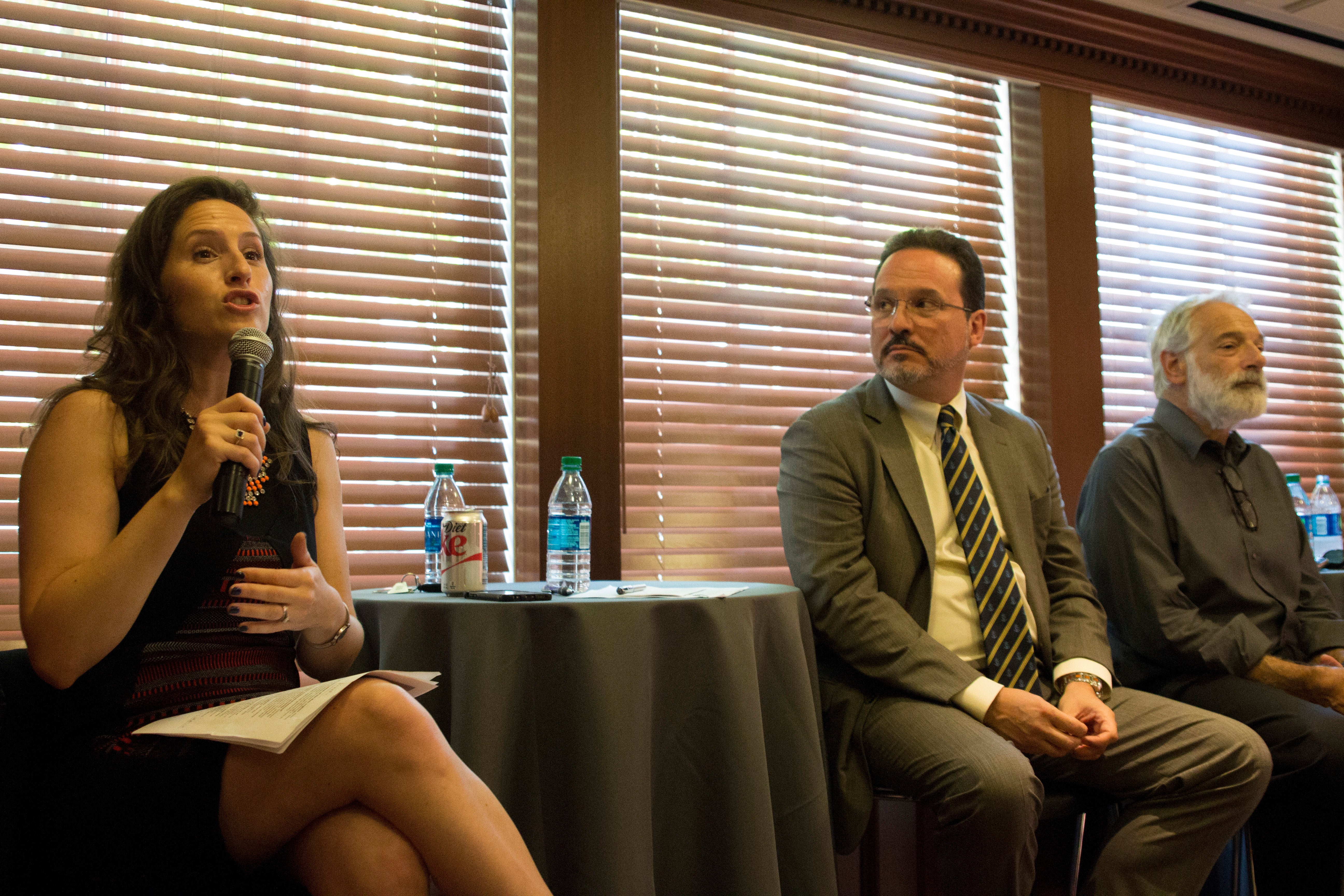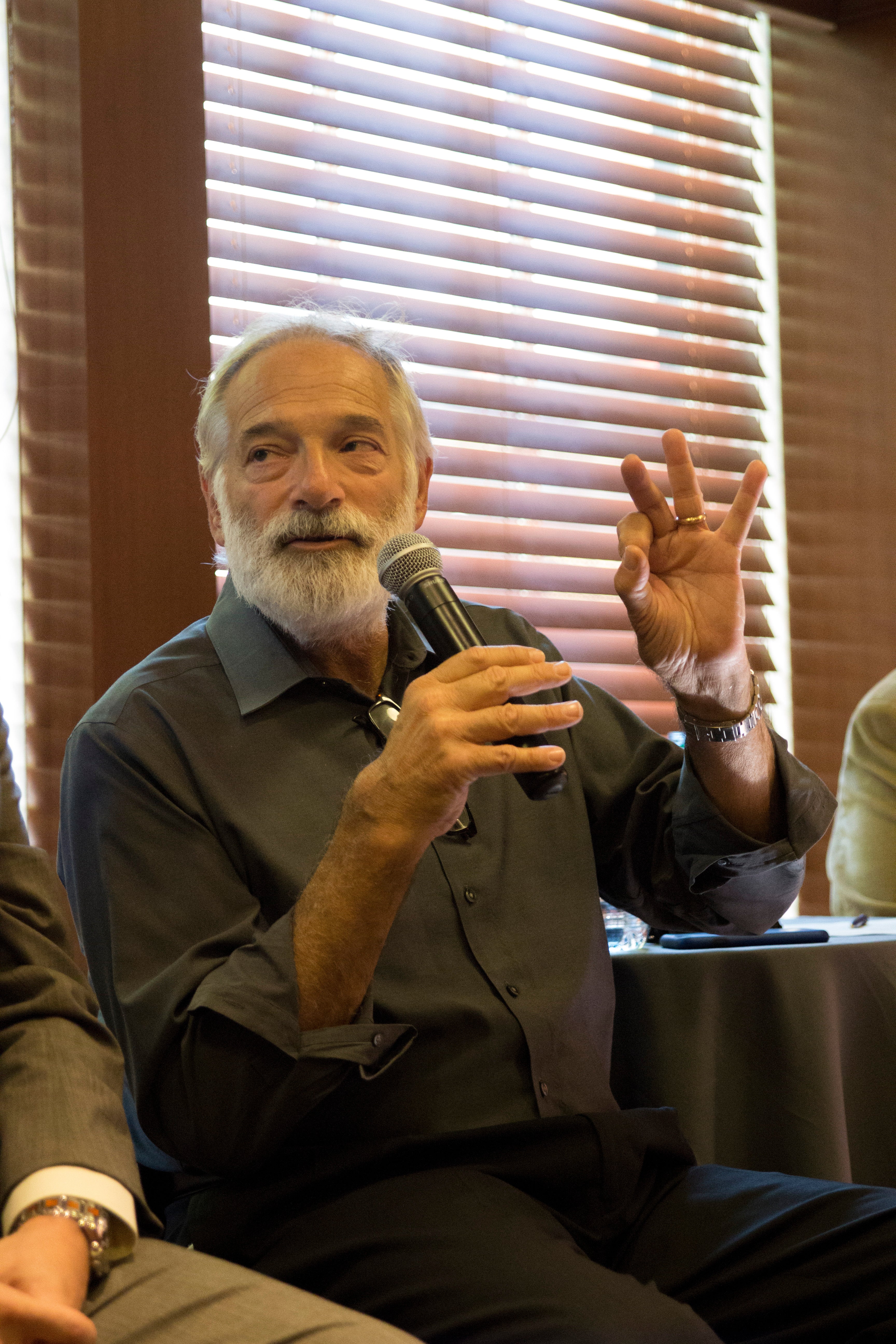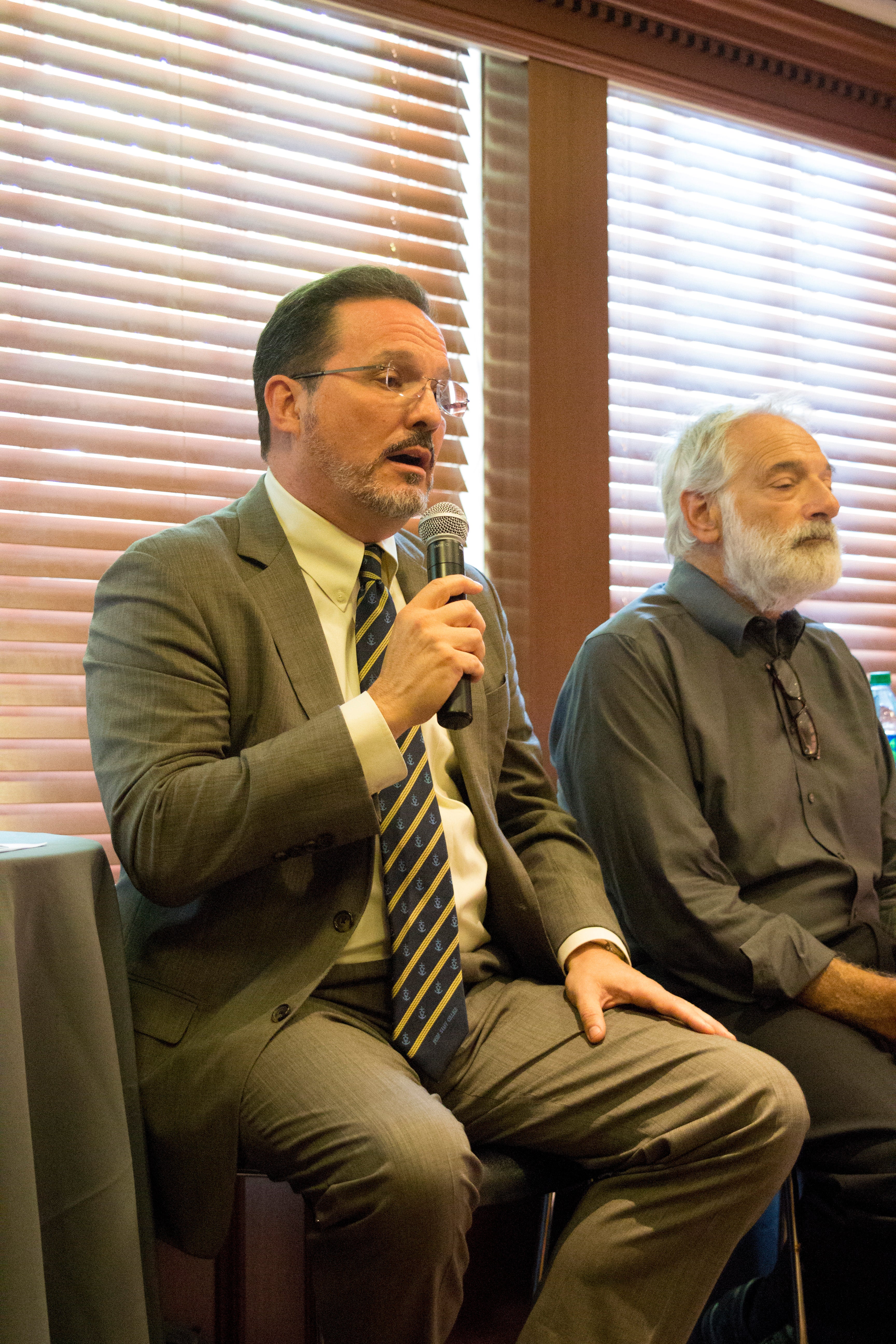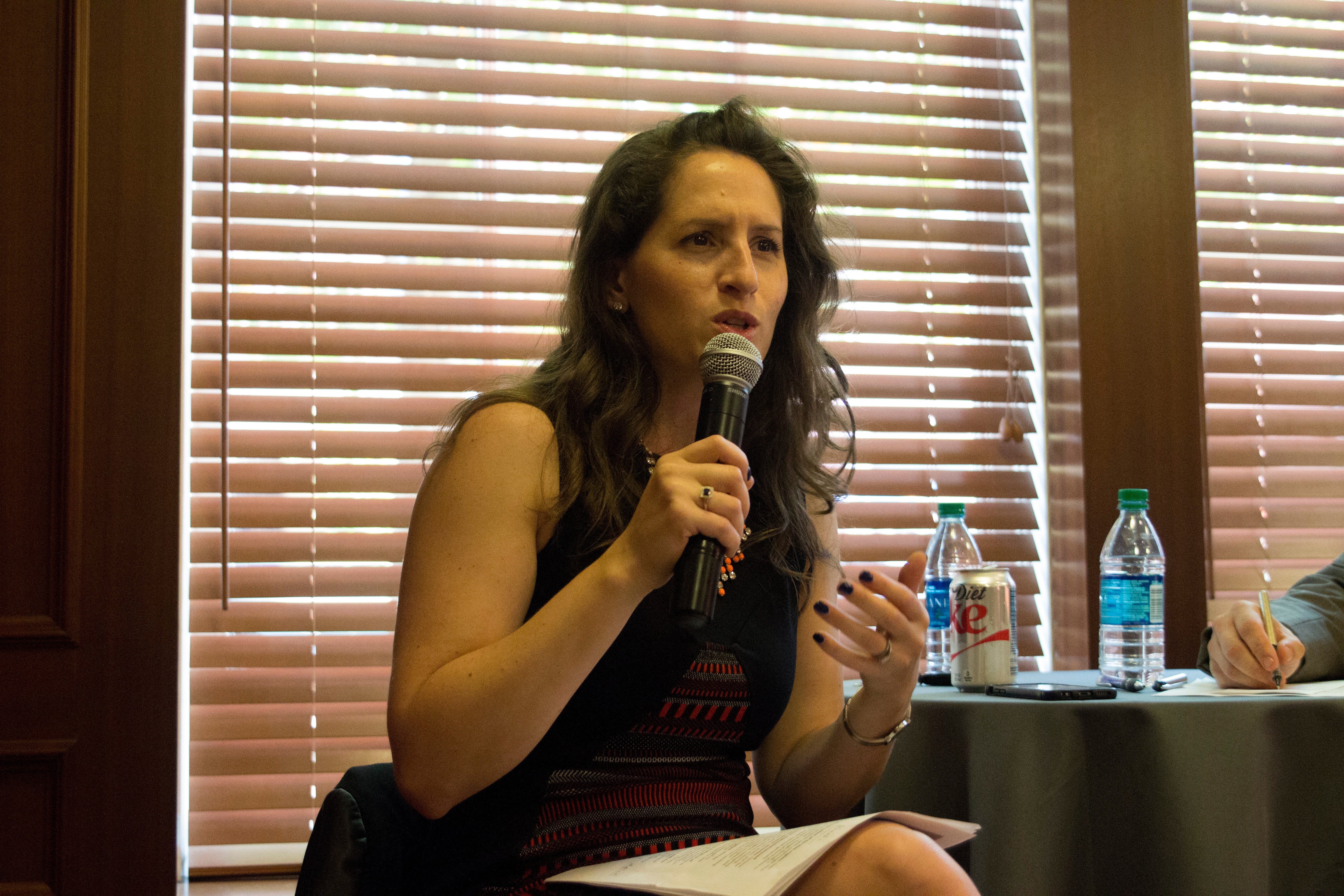
The Mortara Center for International Studies, Center for Security Studies, and Asian Studies Program hosted a discussion on Tuesday, October 10, 2017, to discuss the ongoing security issues with North Korea. Panelists included Ambassador Robert Gallucci (former Ambassador-at-Large and Special Envoy at the U.S. Department of State), Dr. Michael J. Green (Chair in Modern and Contemporary Japanese Politics and Foreign Policy at SFS and former NSC member), and Dr. Oriana Skylar Mastro, (Assistant Professor, Chinese military-security expert and U.S. Air Force Reserve member at the Pentagon). The panel was moderated by Dr. Abraham Newman, Associate Professor and Director of the Mortara Center.

Gallucci started by explaining the root of the longstanding conflict between North Korea and the United States. “It’s not really at its base territorial…it is the North Korean attempt to acquire nuclear weapons and then the ballistic missile capability to deliver them against the continental United States.”
He continued, explaining that the United States, during both the George W. Bush and Obama Administrations, tolerated North Korea’s acquisition of nuclear weapons and the development of ballistic missiles. According to Gallucci, the recent escalation can be explained in part by the new president in office. “The reason we are where we are is because the USA has been taking the position, at least in the Trump administration never taken before, that we will not allow North Korea to have the capability to target the United States with an ICBM armed with a nuclear weapon.”
Green weighed in, stating that North Korea wants nuclear weapons “as a tool for…achieving their political objectives, which everyone will tell you is regime survival. But it’s more than regime survival – it’s legitimacy over the south, and it’s the possibility…of somehow and someday reunifying the Korean peninsula under Pyongyang.” According to Green, North Korea is not interested in stability, but sees nuclear weapons as a way to terrorize the international community to help achieve these objectives.

Panelists also discussed the validity of using negotiations with North Korea as a tool for nuclear non-proliferation. Green remained skeptical;
North Korea has cheated on every single agreement they’ve signed with the United Nations, United States, Japan, Korea, China, Russia, the six-party talks, on every single one they’ve cheated, since the end of the Cold War.
Due to this, Green postured, it is better to focus on diplomacy through sanctions, and continue discussions with North Korea about U.S. expectations, leading to better terms for negotiation in the future.
Mastro agreed with this take on negotiations, adding that, “Kim Jong Un, anything he agrees to, if it’s not in his interest, he’s going to violate it.” However, she added that negotiations can be a useful tool for gathering intelligence and would allow the United States to get a better sense of the actual situation inside North Korea. Mastro emphasized that the United States needs to be careful about its approach for negotiations, because according to her, “The more the U.S. threatens and escalates, the less likely we are to get people to the table…”

The discussion of China as a potential partner for negotiations against North Korea was also a key topic for the panel. While many think of China and North Korea as allies, Mastro clarified that, “China is not wedded to the preservation of the Kim regime…they would be happy if North Korea and South Korea were reunified under the South Korean government.” According to Mastro, the biggest issue for China is U.S. military presence on the Korean peninsula, and unless the U.S. agrees to some type of military disengagement in the long term, it is unlikely that China will get on board with any negotiations.